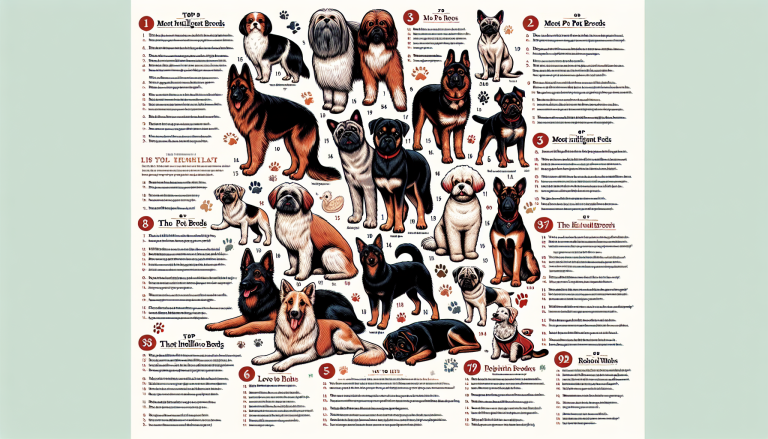If you suffer from allergies but still dream of having a furry friend, fear not! We have compiled a list of the top five best pets for allergy sufferers. From hypoallergenic dog breeds to low-dander cats, these delightful companions will allow you to experience the joys of pet ownership without the pesky sneezing and sniffles. Say goodbye to itchy eyes and congestion, and say hello to a new and allergen-friendly addition to your family. Discover the perfect pet that will bring endless love and minimal allergic reactions into your home.
Table of Contents
ToggleDogs
Hypoallergenic dog breeds
If you love dogs but suffer from allergies, there’s good news! There are several hypoallergenic dog breeds that are less likely to trigger allergic reactions. These breeds typically have hair instead of fur and produce fewer allergenic proteins in their saliva and dander. Some popular hypoallergenic dog breeds include the Poodle, Bichon Frise, Shih Tzu, Maltese, and Yorkshire Terrier. These breeds have a reputation for being friendly, affectionate, and great companions.
Low-shedding dog breeds
If managing dog hair is a concern for you, opting for a low-shedding dog breed can be a game-changer. Low-shedding breeds still have fur but tend to shed less, reducing the amount of allergens in your home. Breeds such as the Portuguese Water Dog, Whippet, Italian Greyhound, Basenji, and Havanese are known for their minimal shedding. These breeds not only offer allergy relief but also come in a diverse range of sizes and temperaments, making it easier for you to find the perfect fit for your lifestyle.
Tips for managing dog allergies
While choosing a hypoallergenic or low-shedding dog breed can significantly reduce allergens, it’s important to note that no dog is completely allergy-proof. Here are some tips to help manage dog allergies:
- Keep your home clean by regularly vacuuming to remove pet dander and hair.
- Establish pet-free zones in your home, such as bedrooms or certain furniture, to limit exposure to allergens.
- Bathe your dog frequently using hypoallergenic shampoos to remove allergens from their coat.
- Invest in an air purifier with a HEPA filter to capture airborne allergens.
- Consult with your allergist for personalized advice and potentially explore allergy shots or medication to alleviate symptoms.
Cats
Hypoallergenic cat breeds
For those who prefer feline companionship, hypoallergenic cat breeds can be a great fit. These breeds produce fewer allergenic proteins, making them less likely to cause allergic reactions. Some popular hypoallergenic cat breeds include the Sphinx, Russian Blue, Bengal, Devon Rex, and Siberian. Despite myths about hairless cats being the only hypoallergenic option, there are various breeds with different coat types that provide options for allergy sufferers.
Tips for managing cat allergies
Living with cats while managing allergies can be challenging, but it’s not impossible. Here are some tips to help you coexist with your feline friend:
- Regularly groom your cat to minimize dander and fur buildup.
- Opt for hard-surfaced flooring instead of carpets, as it is easier to clean and less likely to trap allergens.
- Create an “allergy-free” zone in your home where your cat is not allowed, like your bedroom.
- Use hypoallergenic bedding and pillowcases to reduce exposure to allergens while you sleep.
- Consider using HEPA air purifiers or filters to capture airborne allergens.
Birds
Hypoallergenic bird species
If you’re looking for a pet that’s a bit more exotic, birds can make great companions. While birds do produce dander, there are hypoallergenic bird species that may be more suitable for allergy sufferers. Some hypoallergenic bird species include the Pionus, Caique, Eclectus, Quaker Parrot, and Cockatiel. These birds tend to produce less dander and are often considered less allergenic than other species.
Tips for managing bird allergies
Managing bird allergies involves taking extra precautions to minimize exposure to allergens. Here are some tips to help you enjoy the company of your feathered friend while keeping allergies at bay:
- Regularly clean your bird’s cage and surrounding area to reduce the buildup of feathers, dander, and droppings.
- Wash your hands immediately after handling your bird or cleaning their cage.
- Consider using a high-efficiency particulate air (HEPA) air purifier to filter out airborne allergens.
- Avoid keeping your bird in areas where you spend a lot of time, such as your bedroom or living room.
- Consult with an avian veterinarian for additional advice on managing bird allergies.
Fish
Non-allergenic fish options
If allergies prevent you from having a furry or feathery pet, consider diving into the world of aquariums and fishkeeping. Fish are often considered non-allergenic pets, as they don’t produce dander or shed fur. Some popular non-allergenic fish options include Bettas, Guppies, Mollies, Platies, and Tetras. These beautiful aquatic creatures can bring a sense of serenity and tranquility to your space without triggering allergic reactions.
Tips for managing fish allergies
While the chances of having an allergic reaction to fish are minimal, it’s still essential to take proper care and precautions. Here are some tips for managing fish allergies:
- Clean your fish tank regularly to maintain optimal water quality and prevent the growth of mold or allergens.
- Avoid overfeeding your fish, as excess food can contribute to water contamination.
- Wash your hands thoroughly after handling fish or performing any maintenance tasks.
- Consider using a filtration system that includes a high-quality mechanical and biological filter to keep the water clean and allergy-friendly.
- If you have severe allergies, consider wearing gloves while working with the tank or having someone else handle maintenance tasks.
Reptiles
Hypoallergenic reptile species
If you have a fascination for less conventional pets, reptiles can offer a unique and hypoallergenic option. Reptiles typically don’t have fur or produce dander, making them less likely to trigger allergies. Some hypoallergenic reptile species include Leopard Geckos, Bearded Dragons, Corn Snakes, Ball Pythons, and Red-Eared Sliders. These reptiles require specialized care and are suitable for individuals who are comfortable with their husbandry needs.
Tips for managing reptile allergies
While reptiles are generally considered low-allergenic pets, allergens can still be present in their environment. Here are some tips for managing reptile allergies:
- Keep reptile enclosures clean and free from waste or bacteria by regularly sanitizing their habitat.
- Wash your hands thoroughly after handling your reptile or touching any surfaces in their enclosure.
- Avoid housing reptiles in bedrooms or areas where you spend extended periods to minimize allergen exposure.
- Use high-quality air filters or purifiers to capture any potential allergens in the air.
- If you have severe allergies, consider wearing gloves or using cleaning tools when handling or cleaning the reptile’s enclosure.
In conclusion, having allergies doesn’t mean you have to miss out on the joy and companionship of owning a pet. With a wide variety of hypoallergenic and low-allergenic options available across different species, there is a pet out there that can suit your needs. Whether you choose a hypoallergenic dog breed, a low-shedding cat breed, a melodious bird, an enchanting fish, or an intriguing reptile, with proper care and management, you can find the perfect pet that brings you happiness without causing allergic reactions. Remember to consult with your doctor or allergist for personalized advice and guidance.








